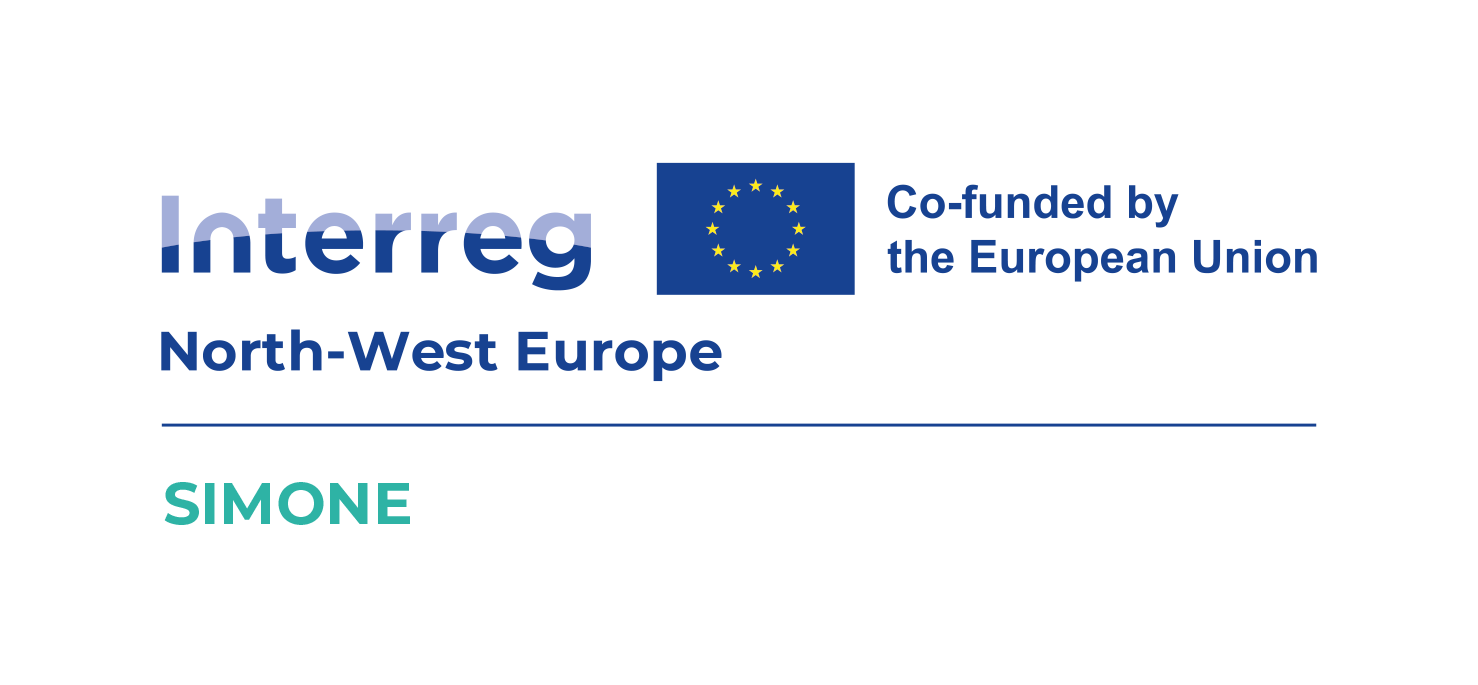The SIMONE project aims to improve territorial resilience in North West Europe through innovative and smart technologies in the area of weed management, sustainable crop nutrition and crop resilience management. Arable farming has a wide range of solutions for modernizing and adapting its practices, with a considerable impact on the resilience of NWE. As set out in the EU Green Deal strategy, reducing pesticide and nutrient use by 50% and 20% respectively, by 2030 and ensuring sustainable farming systems are necessary for a fair, healthy, and green EU food system.
SIMONE will be the driving force behind this agroecological transition in NWE area. This ambitious 4- year project addresses three major issues faced by farmers at the cropping system level when supported by supply chain stakeholders – including consumers: (i) integrated weed management, (ii) sustainable crop nutrition, and (iii) crop resilience management. Although many agroecological measures exist (farming practices, technologies, genetics…), they need to be inventoried, evaluated, and adapted to farm-specific conditions.
Seven living labs will be set up to strengthen (inter-)regional cooperation, define the needs of farmers and actors, and identify possible agroecological transition paths. Having identified the most relevant agroecological measures, partners will co-develop simulators to predict the most effective combinations of measures based on technico-economic and environmental indicators at local and regional levels.
Farmers on their farms will then implement and evaluate these measures through On-Farm Experiments (OFE). Regional partners and stakeholders will assist at least 50 farmers in their OFE by (i) setting up trials, (ii) providing monitoring expertise and smart technologies, (iii) proposing actionoriented development to support the agroecological transition (new markets, specific technologies, policy support, training, education…).
Finally, cross-fertilisation will be fiercely promoted through impactful dissemination and collaboration activities to reach at least 10,000 stakeholders. This together with long-term follow-up of the project outputs, will ensure a lasting effect on the territory.
The main activities undertaken by SIRIG will include stakeholder engagement, sustainability engagement, the development and evaluation of living lab indicators, as well as an array of other research activities in collaboration with SIMONE’s project partners.
The project is funded through the Interreg NWE programme with a total project value of €5.4 million with €2.8 million sourced from the ERDF.
Project partners from education and research along with governance and advisory have aligned with the aim to deliver innovative and smart transformation of the agri-sector across North West Europe. The project partners include:
- Lead partner: Arvalis
- Munster Technological University
- Inagro
- HIPHEN
- Agroscope – Swiss centre of excellence for agricultural research
- VIVES University of Applied Sciences
- Van Den Borne Projects
- Walloon agricultural Research Centre
- Foundation of the Northern Arable trialfarms
- French open-minded Organic Conservation Agriculture non-profit organization
- Citizens for Regional Agriculture and Food

